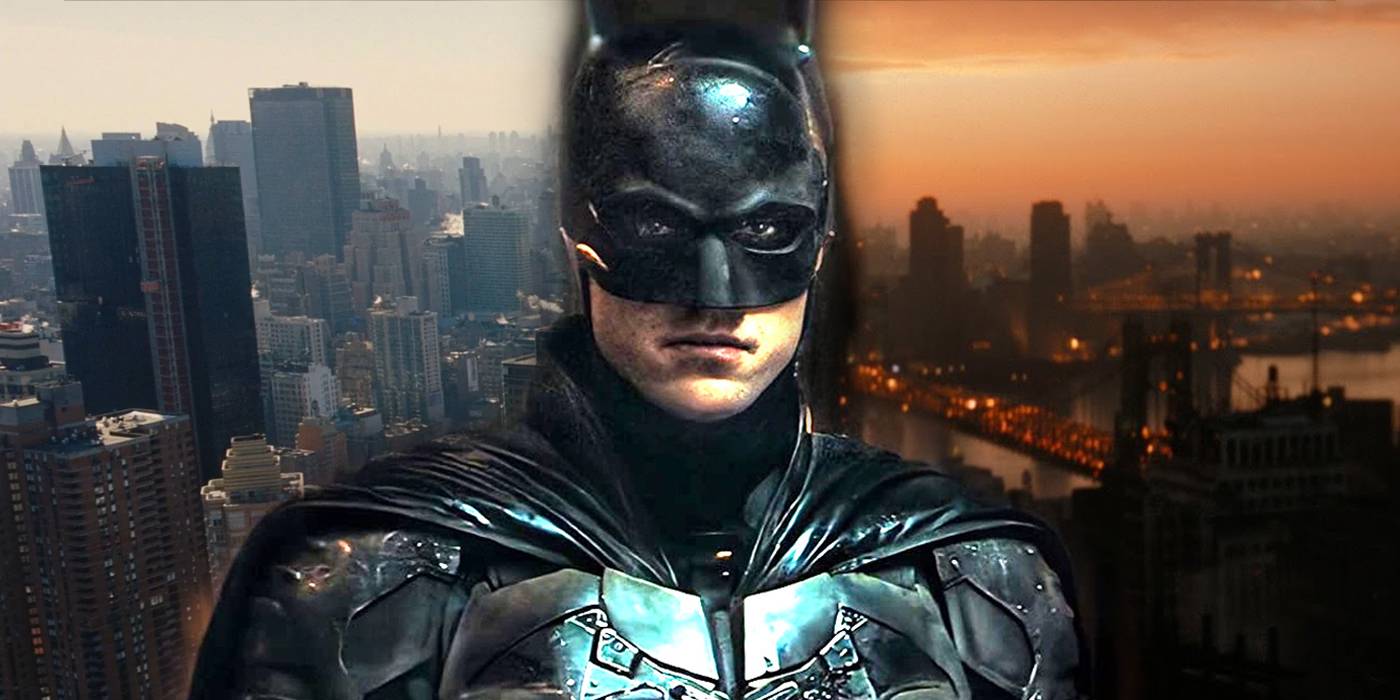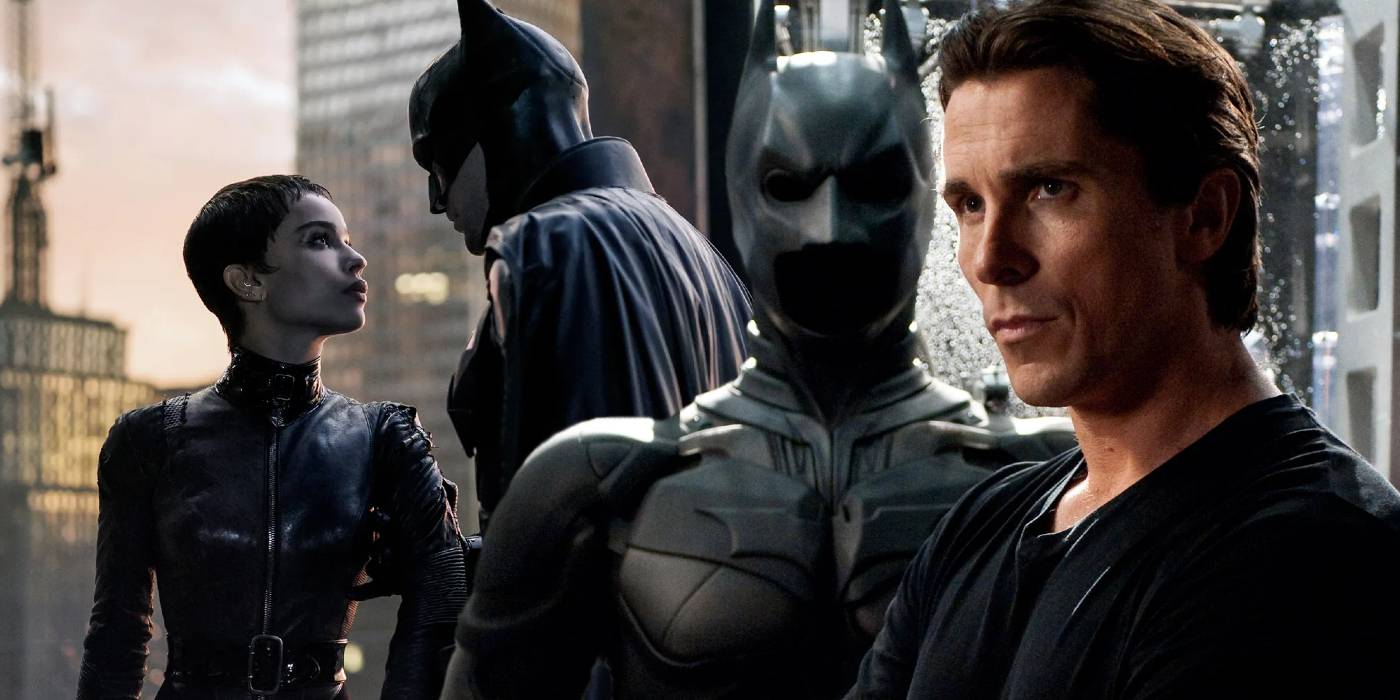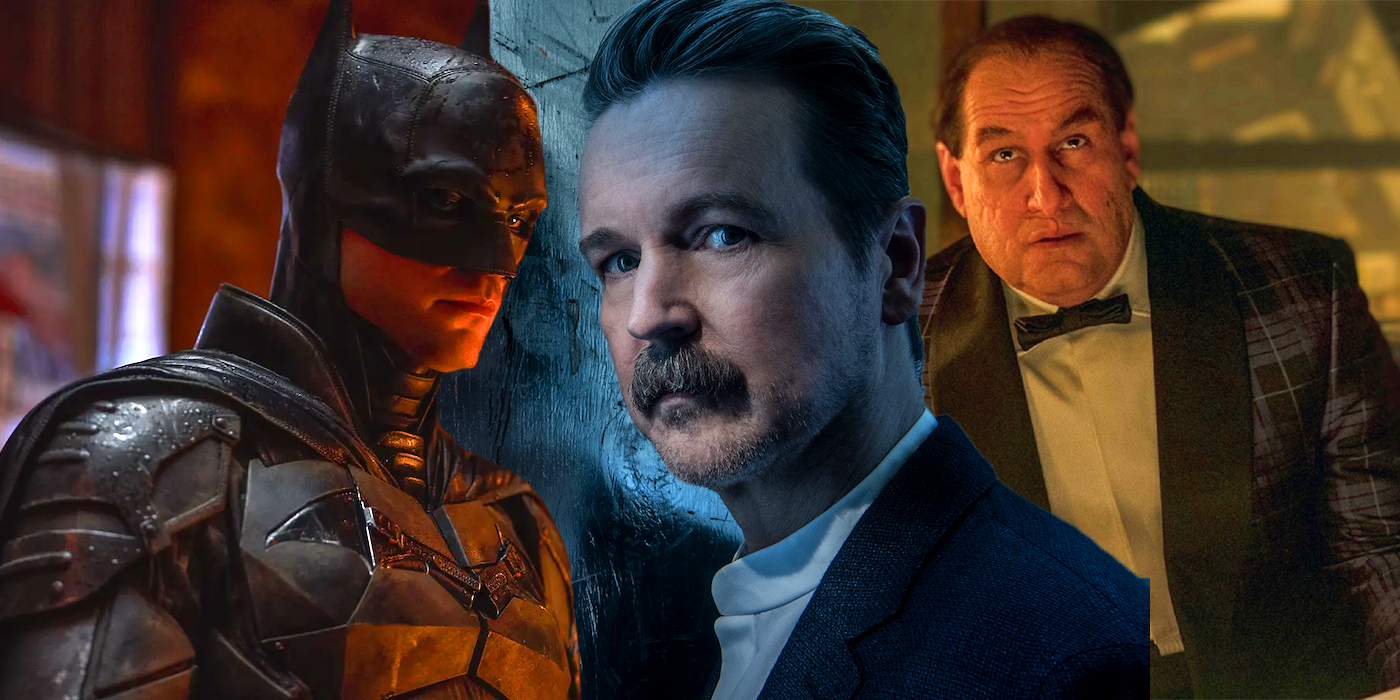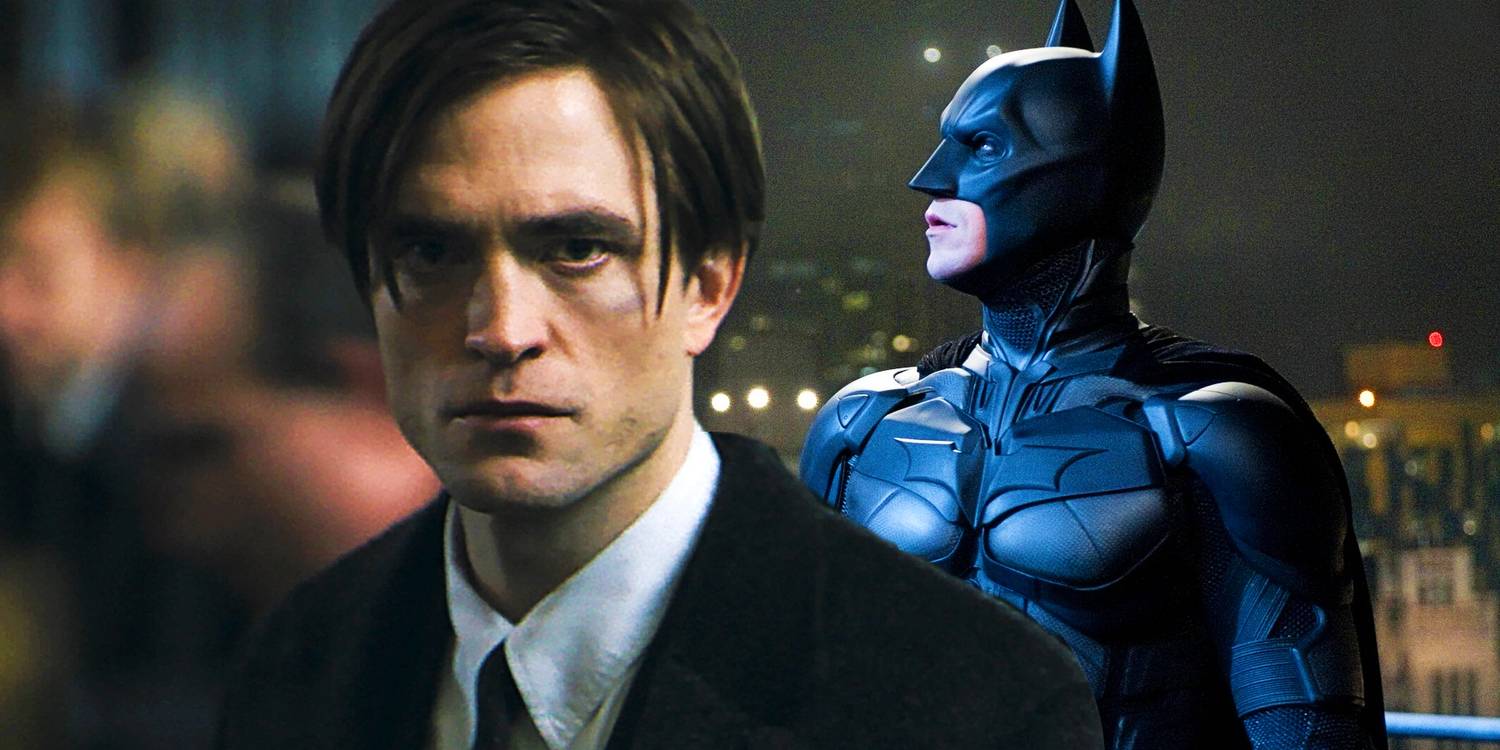Tonal similarities mean that Matt Reeves’ The Batman will likely always face comparisons to Christopher Nolan’s The Dark Knight trilogy, but it may not actually be a bad thing. As far as iconic characters go, there are few fictional characters with cinematic histories as long and impressive as Batman’s. Over his many decades as one of pop culture’s most prominent figures, Batman has seen many cinematic incarnations, each of which has contributed in some way to his larger mythos. Batman stories typically explore the deeper themes of duality, humanity, sanity, and living with emotional trauma, as well as offering the opportunity for exciting superhero action.
Of the many modern iterations of the character, perhaps none stand out as more innovative as Christopher Nolan’s Dark Knight trilogy, which delivered an incredibly fresh and interesting take on the character. Starting with the aptly named Batman Begins, the trilogy continued with the critically acclaimed The Dark Knight and was rounded off by The Dark Knight Rises. Starring Christian Bale as Batman, Christopher Nolan’s trilogy proved to be perhaps the most popular incarnation of the character as of its release, thanks in large part to its grounded and gritty approach to Batman’s story.
Interestingly, Matt Reeves’ The Batman touches on many of the same ideas as Nolan’s movies. The tonal and visual similarities behind the two incarnations of the Caped Crusader immediately prompted significant comparisons, and it seems incredibly likely that these will continue ad nauseam. As it would seem that Christopher Nolan’s world served as inspiration for Robert Pattinson’s Batman, The Batman may well be doomed to exist in the shadow of Nolan’s Dark Knight movies. However, this may not actually be a bad thing, as the strengths of one version may actually highlight the strengths of the other, making both incarnations seem even better by comparison.
The Batman Shares Some Similarities With Nolan’s Trilogy
The apparent similarities between The Batman and Christopher Nolan’s Dark Knight trilogy are somewhat obvious, but they contribute massively to the comparisons between the two by making them seem inherently connected. The most obvious way in which the separate versions of the characters are alike is in the gritty tone of their respective movies. Nolan’s world served as a grounded and realistic take on Batman’s story and supporting characters, with The Dark Knight trilogy’s villains in particular undergoing significant redesigns.
This is something that The Batman also made use of. Reeves’ story took clear tonal inspiration from Nolan’s movies, with the more grounded nature of its story and world being a key part of The Batman just as it was for The Dark Knight trilogy. Though the two versions use distinctly different villains, they largely explore very similar themes: Batman finding his identity as a hero through the way Gotham sees/needs him, and the vigilante persona morphing from a catharsis for Bruce’s childhood emotional trauma into something far more hopeful. The similarities between The Batman and The Dark Knight trilogy are clear, and they facilitate a great deal of comparison.
Nolan Did Gritty Realism In Batman Movies First
Though both versions of the character make use of gritty realism, Nolan did it long before Matt Reeves did, which is obviously significant. The Dark Knight trilogy made Batman gritty and grounded by introducing more plausibility into his characterization, as well as into the city of Gotham. The fact that Nolan was the first to successfully make a realistic take on Batman’s character in live-action is key: Nolan’s movies set a precedent for the character that Matt Reeves’ The Batman seemingly followed.
Though both incarnations of the character have different styles and approaches to crime fighting, both make extensive use of a more grounded adaptation of Batman’s established story. For example, where Bale’s Batman relied more heavily on gadgets and technology, Pattinson’s focuses more on detective work. The two may explore different ideas in their versions of Batman, but both make use of the same realism. As Nolan did it first, Matt Reeves’ movie seems doomed to be dubbed as something of a copycat of Nolan’s simply because they operate largely within the same tonal sphere.
Matt Reeves’ Gotham Builds Upon Nolan’s Ideas
Though it’s easy to see the superficial similarities and dismiss The Batman‘s own innovation as piggybacking off of The Dark Knight trilogy’s success, this fundamentally isn’t the case. As Christopher Nolan laid the foundation with his groundbreaking Dark Knight trilogy, Matt Reeves’ own imaginative take on the character should be viewed as building upon Nolan’s work rather than simply copying it. Though Nolan may have set the precedent, Reeves’ furthered many of his ideas, and that’s what makes The Batman every bit as great as The Dark Knight trilogy.
Many of Reeves’ ideas seem to have initially stemmed from successful elements of Nolan’s movies, but they have been developed much further. For example, The Batman‘s Riddler was inspired by real-life criminals, and though that realistic nature drew some parallels with The Dark Knight‘s Joker, Dano’s Riddler is far more plausible a villain. Reeves recognized that making something plausible isn’t the same as making it realistic, and he subtly built upon the foundation laid by Nolan’s movies – and it’s a tactic he applied throughout The Batman, making his movie a spiritual continuation of Nolan’s own Batman innovation.
Why Comparisons Between Reeves’ & Nolan’s Movies Are Good For Batman
Though the idea may seem counterproductive, the comparisons between The Batman and The Dark Knight trilogy are actually good. As the two versions rank among the best-received incarnations of the character, analyzing their respective strengths and weaknesses only further establishes exactly what makes a good Batman movie. With two different versions of Batman both receiving considerable critical praise, future adaptations of the character have a wider pool of popular ideas to draw inspiration from, and other filmmakers know which ideas work and which do not.
Though the differences between Robert Pattinson’s Batman and Christian Bale’s version are many, the tonal similarities between The Batman and The Dark Knight trilogy make comparisons inevitable. Nolan beating Reeves to the character means that The Batman is always doomed to exist in the shadow of Nolan’s accomplishments, but the healthy comparisons between the two will only serve to make future incarnations even better. As Christopher Nolan’s The Dark Knight trilogy set a winning template for a grounded Batman movie, Matt Reeves’ The Batman did the only logical thing: it borrowed the best elements and changed the rest, making for a tonally similar, but narratively distinct film that also happened to be a hit with critics.







